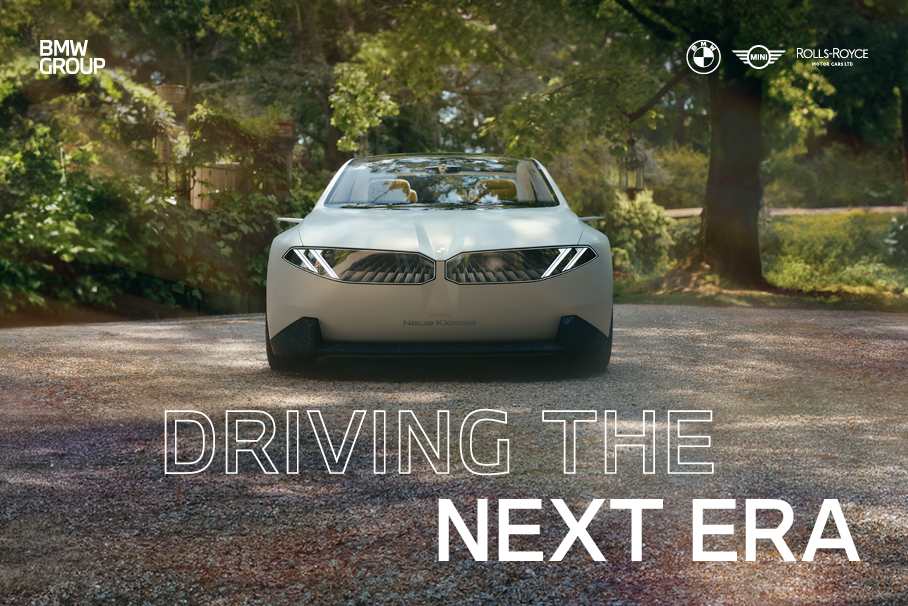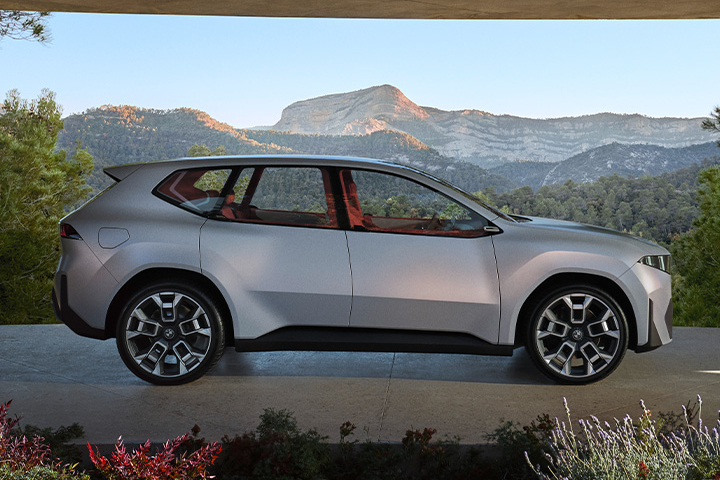DRIVE TECHNOLOGIES.
As it advances future mobility, the BMW Group is establishing and developing new drive technologies. So, as well as enhancing its existing solutions, it is also researching new ones. Given our focus on sustainability, the spotlight is very much on electric drives, and with the launch of the Neue Klasse in 2025, we will be gearing up for a fully electric portfolio. While electromobility using battery electric vehicles is already established as standard, hydrogen technology has the potential to play an important role on the road to decarbonization.
ELECTRIC DRIVES.
At the BMW Group, the future of mobility is electric. BMW eDrive technologies and Efficient Dynamics are at the very heart of our premium vehicles, because when it comes to dynamic driving, more powerful electric motors and increased-capacity energy storage are fundamental, while maximum torque ensures fast acceleration right from the get-go.
HYDROGEN DRIVES.
Electric mobility is already widely available across the BMW Group’s product range, but there’s another technology that’s seen as a potential key to future mobility too: hydrogen technology. The vision of hydrogen cars is already rooted in reality, with a fleet of BMW iX5 Hydrogen cars out on the roads right now, in a pilot project that brings together hydrogen-fuel-cell drives and electric technology in a way that reinvents electric driving. And the development of hydrogen-powered mobility with zero local emissions is only just beginning…
COMBUSTION ENGINES.
Combustion engines by the BMW Group are made for maximum efficiency and performance and minimum fuel consumption and pollutants. Our three-, four- and six-cylinder petrol and diesel engines with BMW TwinPower Turbo Technology set new standards.
The latest-generation BMW EfficientDynamics engine family delivers superior performance and environmental credentials, thanks to state-of-the-art injection technologies, innovative transmissions and BMW BluePerformance for lower nitrogen emissions.
FUTURE REFUELLING AND CHARGING INFRASTRUCTURE.
To keep new drive technologies for passenger cars developing at pace, an extensive and comprehensive refuelling and charging infrastructure is needed.
ELECTRIC CHARGING.
Over the last few years, the number of charging stations for battery electric vehicles has soared, with more than 75,000 normal chargers available to the German public alone – and over 15,000 fast-chargers. By 2030 the number of charging points is expected to reach a million, offering widespread coverage in urban areas especially. The BMW Group is focusing on expanding the infrastructure and increasing charging speeds, and developing services for customer-friendly charging – anywhere.


